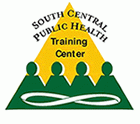
Orientation to the Essentials of Public Health - Introductory Level
Course Description:
Orientation to the Essentials of Public Health, Introductory Level provides a brief history of public health in the US. It also discusses the guiding principles for those who practice public health. From the initial three core functions of public health first defined by the Institute of Medicine in 1988 through the current 10 essential services of public health set by the US Department of Health and Human Services. The expanded role of public health in the times of disasters is also explored. Examples of current public health initiatives in the Southeast as well as testimonials by current public health employees demonstrate the importance of public health in today's society.
Target Audience
Academic Faculty/Staff, Federal Government Employees, State Government Employees, Local Government Employees, Non-Government Employees and Students
Learning Objectives
- Describe the history of public health in the United States
- List principle concerns of public health in the 20th century
- Name and describe the 10 core functions of public health
- Explain the role of public health in today's society
Instructor:

Donald E. Williamson, MD
State Health Officer
Alabama Department of Public Health
Available Credit
- 1.00 Participation/CETulane Professional and Continuing Education (PaCE) awards 1.00 hour(s) of credit for completing Orientation to the Essentials of Public Health - Introductory Level
Price
Required Hardware/software
System Settings
This course is designed to work most effectively if your computer and internet connection meet certain minimal requirements. This course can be accessed using a Windows 10 PC or a Mac with High Sierra1, Mojave, or Catalina. Pop-up blockers should be disabled when viewing the course. Internet Explorer 11 (for Windows 10), or the current version of Google Chrome, Mozilla Firefox, or Apple Safari (for Windows 10 and or Mac) is required. Many of our courses require Java and JavaScript enabled.
Links to External Websites
Links to websites outside this course will open in a new window or tab. Some browsers may minimize the course window. If this occurs, maximize the course window to return to the course.
Adobe Acrobat Reader (for desktops and laptops)
Adobe Acrobat Reader is required to access some documents in this course. If you need to download a free copy of Acrobat Reader, click here.
Internet Connection Speed
A minimum download speed of 1.5 Mbps is recommended for an optimal experience, which is commonly the speed associated with a basic DSL or a cellular/satellite connection. A faster connection, such as cable or fiber service, with further enhance your online experience. A Wi-Fi connection is generally acceptable, but it is dependent upon one of the two services mentioned above. You can check your internet connection speed at http://www.speedtest.net/.

 Facebook
Facebook X
X LinkedIn
LinkedIn Forward
Forward